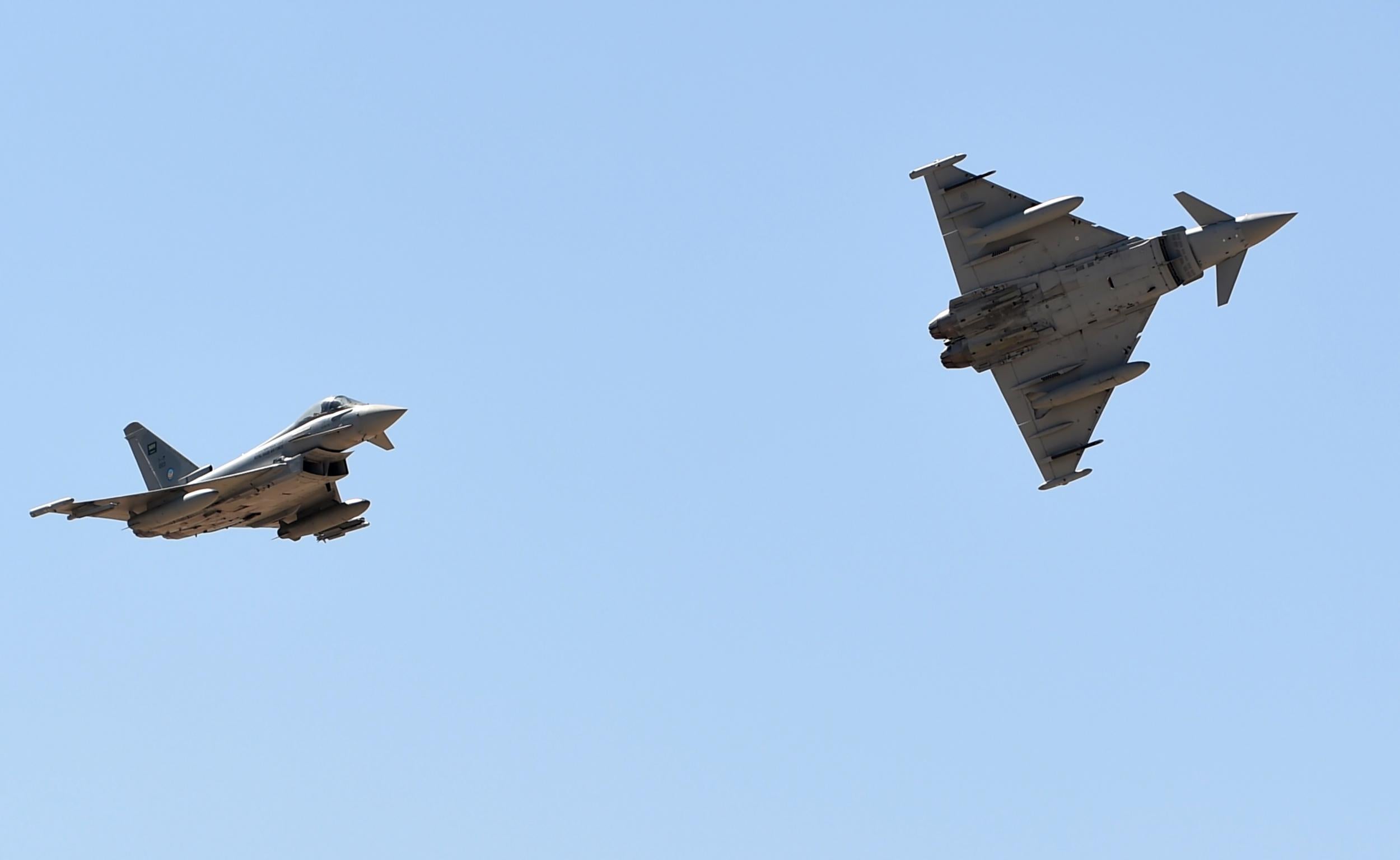Theresa May urged to back British industry as BAE cuts 2,000 jobs
Unions highlighted that a quarter of government defence contracts have gone to US firms

Your support helps us to tell the story
As your White House correspondent, I ask the tough questions and seek the answers that matter.
Your support enables me to be in the room, pressing for transparency and accountability. Without your contributions, we wouldn't have the resources to challenge those in power.
Your donation makes it possible for us to keep doing this important work, keeping you informed every step of the way to the November election

Andrew Feinberg
White House Correspondent
Downing Street is under pressure to back the UK’s defence industry after BAE systems said it will slash 2,000 jobs, amid claims too many British contracts are being handed to US manufacturers.
Unions blamed the loses on decisions to give a quarter of all UK defence contracts to American firms like Boeing, despite that company being behind a complaint that led to another British manufacturer being slapped with huge export tariffs.
Ministers insisted they are backing BAE, but Labour demanded the Government come forward with an urgent plan to save jobs being lost at sites across the UK.
The announcement once again threw the spotlight on to the Government’s Brexit plans and how UK firms will fare as the country tries to replace lost EU trade with other international deals after withdrawal.
It also comes as a series of key national and international organisations gave a gloomy outlook on the UK’s economic prospects, with Brexit talks still stalling in Brussels.
BAE Systems, Britain’s largest arms manufacturer employing almost 35,000 people in the UK, said the move would help “boost competitiveness, accelerate technology innovation and improve operational excellence from a more streamlined business”.
But it comes after months in which the company has grappled with a slowdown in orders for the Eurofighter Typhoons.
In September Qatar agreed to buy 24 of the jets, but an expected order from Saudi Arabia failed to materialise – despite intense efforts from ministers to boost trade with the Kingdom.
Overall, Typhoon has reportedly won fewer orders so far in 2017 than a rival fighter jet built by France’s Dassault Aviation.
Shadow Defence Secretary Nia Griffith called on the Government to implement “an urgent plan to save these jobs”.
But Union Unite went further, slamming the move as a “betrayal” of workers and accusing the Government of spending increasing amounts of its defence budget in factories overseas.
Assistant General Secretary Steve Turner said that by 2020, around a quarter of the UK’s defence spending will benefit American firms such as Boeing and Lockheed Martin.
“These are world class workers with years of training and expertise on which an additional four jobs rely upon in the supply chain,” he said.
“The UK Government must take back control of our nation’s defence and with it, play its part in supporting UK defence manufacturing jobs.”
Only last year Boeing was handed a £1.7bn contract to secure 50 of the latest generation Apache attack helicopters for the British Army.
But a Government spokesman underlined that BAE had taken its decision due to “internal restructuring” and highlighted how the Ministry of Defence has spent £3.7bn with the company in the last year.
Prime Minister Theresa May said: “Obviously this is an extremely worrying time for people employed by BAE.
“We will be working very hard with the company and will work with those who will be losing their jobs to ensure we can help them into alternative employment.”
She added: “The Secretary of State for Defence has recently signed a memorandum of intent for the Government of Qatar, for example, for purchase of more Typhoons and Hawks which of course will be of help to BAE.”

Last month the fate of another UK-based manufacturer, Bombardier, was thrown into doubt after the US opted to impose a tax on the company’s C-Series jet.
The 220 per cent tariff, proposed after Boeing made a complaint to US regulators, could threaten hundreds of jobs at the firm’s site in Belfast.
The case marked a 48 per cent increase in 2017 of the number of ‘anti-dumping’ cases being taken up by the US Government as it pursues Donald Trump’s “America first” ethos.
Experts said it highlighted the difficulty the UK will face in securing a trade deal with the US after Brexit, but figures released on Tuesday suggested EU withdrawal is having a damaging economic impact right now.
In its twice yearly World Economic Outlook, the International Monetary Fund gave a downbeat assessment of Britain, citing a slump in private consumption and a dramatic tumble in the value of the pound.
It raised growth forecasts for all advanced economies apart from Britain and said it now expects the UK economy – which grew at just half the rate of the eurozone’s in the second quarter of this year – to expand by just 1.7 per cent in 2017, down from an April forecast of 2 per cent.
Data from the UK’s Office for National Statistics showed that the UK had racked up a record trade in goods deficit in August, reflecting a grossly disappointing exports performance since the Brexit referendum and strong imports.
The Office for Budget Responsibility, the Treasury’s official forecasting body, also said on Tuesday it has become more pessimistic about the UK’s productivity.
“We anticipate significantly reducing our assumption for potential productivity growth over the next five years,” it said in its annual Forecast Evaluation Report ahead of the budget.
“Other things being equal a downward revision to prospective productivity growth would weaken the medium-term outlook for the public finances.”
Subscribe to Independent Premium to bookmark this article
Want to bookmark your favourite articles and stories to read or reference later? Start your Independent Premium subscription today.
Join our commenting forum
Join thought-provoking conversations, follow other Independent readers and see their replies
Comments